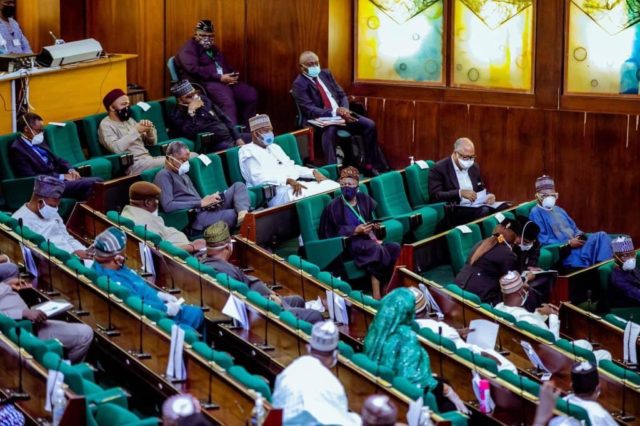By Editor
• Receives 2022-24 MTEF/FSP, to fix 16yrs for UTME candidates • Sanctions three new federal varsities
The Senate, yesterday, passed the all-important bill seeking to establish the Electoral Offences Commission.
The passage makes snatching of ballot boxes an electoral offence that attracts a 20 year jail term.
The piece of legislation added that any candidate or agent, who damages or snatches ballot boxes, papers or election materials before, during and after an election without the permission of the presiding electoral official at the polling station attracts a minimum of 20-year imprisonment or a fine not less than N40 million.
The move was sequel to the consideration of a report by the Kabiru Gaya-led Committee on Independent National Electoral Commission (INEC).
In his presentation, Gaya said the bill became imperative in view of the electoral umpire’s inability to prosecute electoral offenders in accordance with Sections 149 and 150(2) of the Electoral Act (as Amended).
THE upper legislative chamber also confirmed receipt of the 2022-2024 Medium Term Expenditure Framework and Fiscal Strategy Paper from President Muhammadu Buhari for its consideration.
Senate President, Ahmad Lawan, made the disclosure while reading the accompanying letter at plenary in Abuja.
In the correspondence, titled ‘Submission of the Federal Government of Nigeria 2022 – 2024 Medium Term Expenditure Framework and Fiscal Strategy Paper’, the Nigerian leader commended the Red Chamber for the restoration of the January to December financial calendar by the Ninth Assembly.
While seeking expeditious consideration of the documents, Buhari reminded the lawmakers that their timely passage would facilitate early preparation of the 2022 budget based on approved parameters.
He said: “Let me use this medium to express my deep gratitude for the enduring collaboration and commitment of the leadership and distinguished senators in our collective efforts to sustain the restoration of the January to December financial year.
“On our part, we have worked very hard to sustain the early submission of the MTEF/FSP. This is to allow the National Assembly sufficient time to perform its important statutory duty of reviewing the framework and strategy paper.”
BESIDES, the Senate Committee on Basic Education has hinted of its intention to pursue amendment of the Joint Admissions and Matriculation Board (JAMB) Act with a view to pegging the minimum age of candidates sitting for the Unified Tertiary Matriculation Examination (UTME) at 16 years.
Its Vice Chairman, Senator Akon Eyakenyi, who gave the indication during the panel’s oversight visit to the examinations body in Abuja, noted that the committee had identified two major areas to be addressed in the proposed tinkering for better performance.
The committee said admission seekers should not enter school below 18 years, as age has a lot to do with learning ability.
Eyakenyi, who stressed the importance of education to the development and future of Nigeria, added that the sector deserved maximum attention and funding.
While describing JAMB as a bridge between the secondary and the university systems, she said the agency was a necessary vehicle for the delivery of quality and standard education in the country.
Describing the JAMB Registrar, Prof. Ishaq Oloyede, as a round peg in a round hole, the representative of Akwa Ibom South Senatorial District commended the board for the smooth conduct of the 2021 UTME, stating that the exercise was free from malpractice, as every candidate had different questions to treat.
Responding, Oloyede told the panel that his organisation lacked powers to disqualify any candidate on the basis of age, observing that individual institutions could decide on whom to admit.
ALSO, the Red Chamber, passed bills establishing three universities, Federal University of Science and Technology Lau, Taraba State; Federal University of Agriculture and Technology, Aboh, Delta State and City University of Technology, Auchi, Edo State.
The approvals followed the consideration of three separate reports by the Committee on Tertiary Institutions and TETFUND.
Senator Sandy Onor, in his remarks on behalf of the panel chair, Ahmad Babba Kaita, said the federal agriculture varsities would offer graduates knowledge in research to improve on agricultural extension and general practices.

